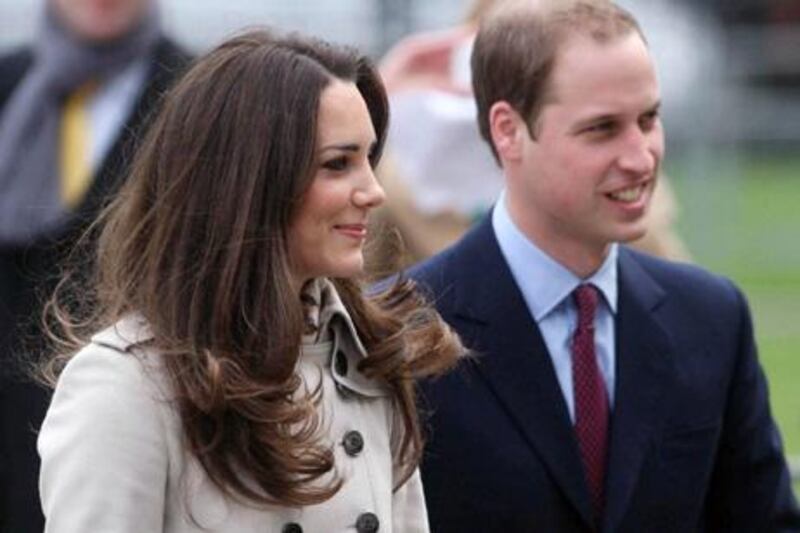If David Cameron's beleaguered government is looking for signs of increased productivity in the UK economy, the next few weeks seem likely to make for grim reading: not because the nation is especially idle, but because it's closed for business.
When it was announced last winter, the royal wedding of Prince William and Kate Middleton (and the unexpected day off that was granted so we could all enjoy it) looked to be an ideal morale booster for the UK, suffering as it was then from snow, ice, and economic gloom.
But coming as it does on the back of the traditional four-day Easter holiday, the April 29th date has resulted in a jumbo-sized vacation, amounting to very nearly a fortnight.
This will be the biggest Royal jolly for nearly 30 years - ever since William's father Charles married Princess Diana back in 1981 - and the prime minister has been encouraging the nation to revel in their extra day off by doing what we've done on such occasions for many decades, namely by holding street parties with our friends and neighbours in order to toast the happy couple.
But life isn't quite as simple as it once was. In 1981 all that was required to organise a community junket was to place a couple of plastic bollards at the ends of the street, set out a couple of trestle tables and crack open the lemonade.
Now, a quarter of a century on, the gaily-coloured bunting that once adorned such events has been replaced by metres of red tape.
Take Cardiff Council in Wales for instance. Anyone wishing to apply to hold a street party in their neck of the woods in 2011 has had to obtain an official permit for road closures, agree on acceptable start and finishing times, and offer assurances on the volume level of any music. Oh, and while they're at it, any bunting that is draped above the celebrants must be hung no lower than 16 feet 6 inches from lampposts.
And that's just for starters. Separate licences are also required if you're planning to erect a stage, show the wedding coverage live on a big screen or allow any dancing. Pedestrian access must be permitted at all times, no stakes or poles may be used, and no overhead electricity cables are permitted.
In Kent, meanwhile, one enthusiastic celebrant was dissuaded from organising her own neighbourhood get-together after the local council advised her she'd need to take out $7 million worth of insurance and have to fill out a six-page dossier detailing every possible hazard and fire risk.
Tales such as these have enraged traditional monarchists to such an extent that the Prime Minister has had to personally intervene, urging celebrants to defy their local killjoy councils and just do it anyway. Diehard Republicans, by contrast, have been dancing in the streets with glee (or at least they would do if only they'd filled out the appropriate forms beforehand). And with only 4,000 parties planned (in contrast to many times that number for the wedding of Charles and Diana) they've hailed this apparent national indifference as a sign of the weakening hold the monarchy has in the affections of the general public.
Yet nobody who lived through the collective mental breakdown that followed the tragic death of Diana in 1997 will need reminding just how fondly the royal family is still regarded in the UK. I fully expect William and Kate's marriage ceremony to be watched by many millions on TV in the privacy of their own living room: but such is the fragmented nature of life in modern Britain that many people nowadays don't even know who lives next door, let alone further down their road.
Still, that's one problem Mr Cameron won't have to cope with. He's staging his own party in Downing Street, and it will be interesting to see if he asks for a special contribution from next-door neighbour Chancellor George Osborne towards the cost of all that insurance.
In the meantime, for any foreign government looking for a way to prevent spontaneous public demonstrations from taking place (as many currently are), the experience of Britain's royal wedding may well offer a way forward. Rather than breaking open the water cannon and the armoured cars to quell any mass gathering, merely insist that everyone planning to march first fills in a six page health and safety assessment, and the chances are you won't have any further trouble.
Michael Simkins is an actor and writer based in London





